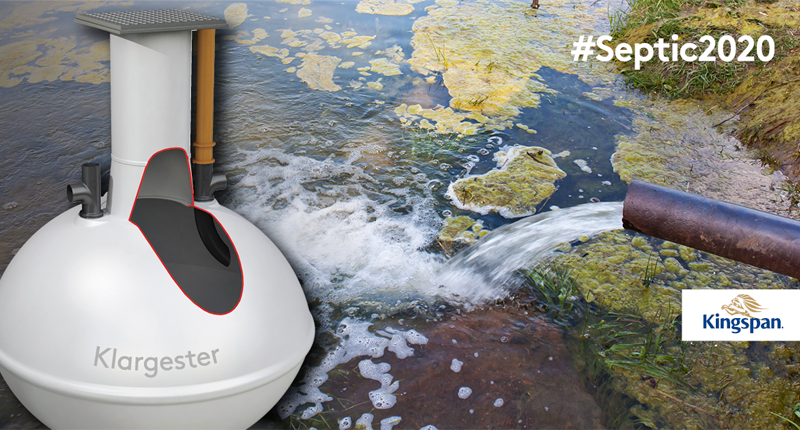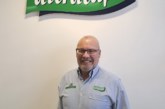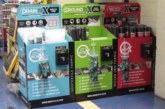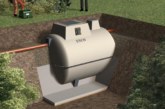
The introduction of new regulations in January 2020 will see homeowners replacing or upgrading septic tanks to stop discharges directly into water courses. PBM speaks to Kingspan Klargester about the upcoming changes, and the company’s new hotline which has been set up to give advice on the regulations to merchants, homeowners, builders and groundworkers.
The soon-to-be introduced septic tank regulations requiring homeowners to stop any discharges directly into water courses is causing huge confusion in the market. Few people seem aware of the change, and the ramifications are clearly not fully appreciated.
Septic tanks are still the most ubiquitous system in the UK for off-mains drainage, but they are far from the most efficient, requiring a drainage field through which effluent can be filtered before it reaches ground water.
The regulatory changes are being applied under the General Binding Rules (and only in England) and apply to any properties with septic tanks where the effluent passes directly into a ditch, stream, canal, river, surface water or drain, meaning the potential for local pollution is extremely high.
Owners will need to replace or upgrade their system either when they sell their property, or before 1 January 2020, whichever is sooner.
What is Off-Mains Drainage?
Homeowners who manage their drainage within the boundaries of their properties are legally responsible for minimising the impact of their sewage waste. Typically this means managing it either through the installation of a septic tank or a sewage treatment plant.
However, the two systems work very differently and understanding these differences is vital in terms of assessing cost, long-term performance, protection of public health and the environment, and of course compliance with relevant legislation.
What is a Septic Tank?
Septic tanks allow the settlement, storage and partial decomposition of solids; the resulting effluent is then typically passed through an external drainage field. They remove significant amounts of solids but only around 30% of the active pollutants, which is why their discharges pose such a threat to surface water in lakes, rivers and streams, as well as to ground water — and ultimately public health.
Under the H2 Building Regulations Drainage and Waste Disposal document, septic tank discharges are considered harmful, hence the requirement for secondary treatment, such as a drainage field or mound, or a reed bed.
What is a Sewage Treatment Plant?
Sewage Treatment Plants (STPs) provide an environment where aerobic bacteria are cultivated to break down sewage. The bacteria survive by using biological matter in the sewage as food. STPs are highly efficient, treating around 95% of the pollutants within the waste matter.
Packaged sewage treatment systems, with tertiary treatment such as packaged reed beds, bring the efficiency rating up to around 98%. They produce a clear overflow that is environmentally friendly and suitable for discharging even on sensitive sites.
2020 Regulatory Requirements
The options for owners of septic tanks that fall foul of the new rules from 1 January 2020 are:
- Remove the septic tank and connect to a mains sewer (if the sewer is close enough to allow this).
- Replace the septic tank with a sewage treatment plant with full BS EN 12566-3 Certification.
- Stop the discharge to the water course and divert the effluent instead toward a drainage field that has been designed and built to the current British Standard BS6297 2007.
Not everyone who owns a septic tank will need to take action: if they have a septic tank with a drainage field that functions effectively, then they will be operating within the law. But if not, then action has to be taken.
Sewage treatment plants that carry full certification will be exempt.
New Hotline
The Kingspan Klargester team has now set up a hotline toprovide one-to-one guidance and advice to merchants, homeowners, builders and groundworkers. Staff from merchants will be able to share the hotline number — 01296 633033— with their customers, or even call on their customers’ behalf.
All callers are taken through a review process by a knowledgeable call handler and then advised if there is deemed to be a probable breach of the new regulations. At this point, the customer will be offered a free on-site assessment from a Klargester expert.
“We really don’t think the market has fully grasped this issue, and although we are starting to see enquiries coming through to our reps from merchant teams, we think this could be the tip of the iceberg,” says Dave Vincent, Commercial Director for Kingspan Klargester.
“This regulation change is not optional or a nice-to-have — homeowners won’t be able to sell their house after January 2020 if their septic tank is not compliant.”
For more information on Kingspan Klargester, visit http://www.kingspan.com/gb/en-gb/products/wastewater-management/septic-tank-regulations-2020-guide










